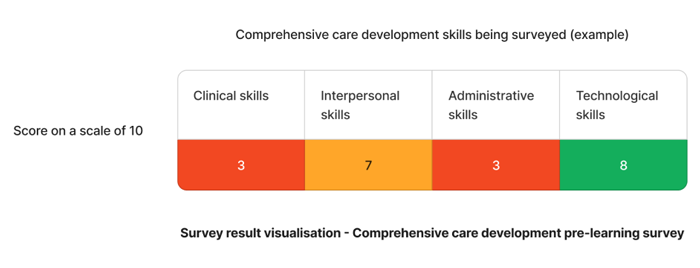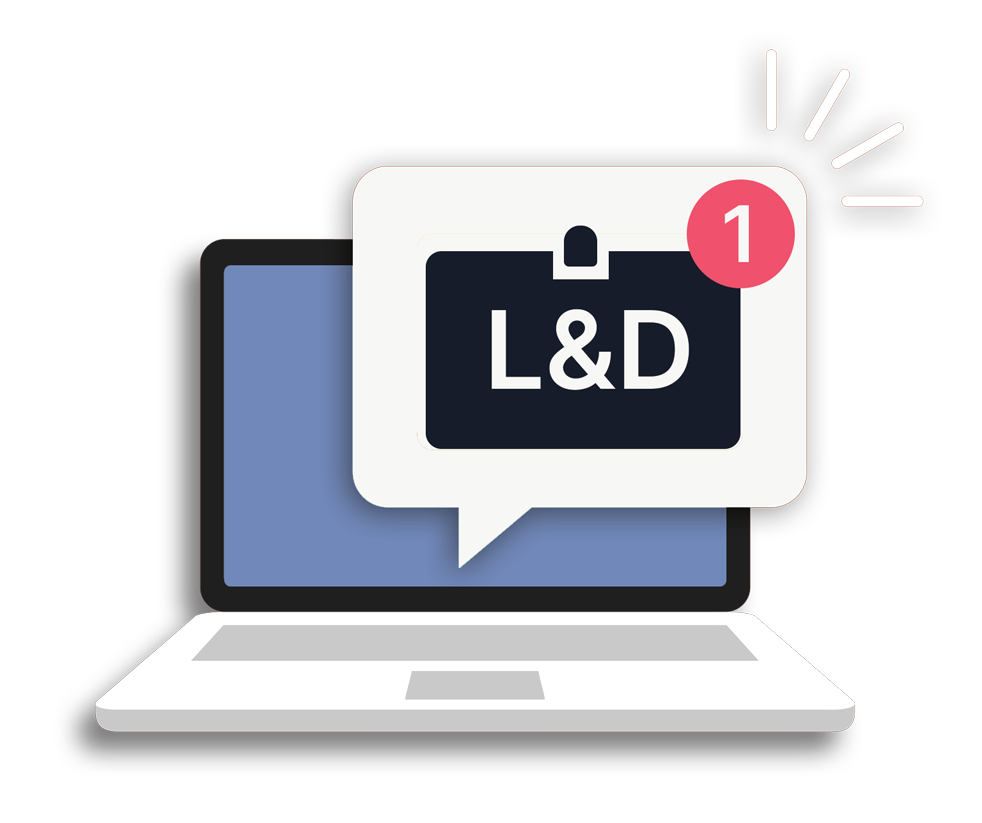This article is part of our Training Requirement Series where we provide comprehensive guides to meet the actual training requirements that are often needed/requested of learning and development departments within Australia's healthcare organisations. This series includes both general requirements, such as comprehensive care plan development care, but also focuses on the specific requirements stemming from the NDIS, Aged Care and NSQHS Quality Standards.
What is a Comprehensive Care Plan?
A comprehensive care plan is an integrated document that outlines a patient's complete healthcare needs and the corresponding strategies to meet those needs. It encompasses assessments, interventions, and evaluations, often involving a multidisciplinary team (MDT). Comprehensive care plans are essential for patient-centred care and are particularly crucial in aged care facilities and healthcare organisations (Australian Commission on Safety and Quality in Health Care, 2021).
Why is Developing a Comprehensive Care Plan Important?
Developing comprehensive care plans is a pivotal aspect of modern healthcare, particularly within the framework of the Australian healthcare system. This practice impacts not only the quality of care provided to patients but also the operational efficiency of healthcare organisations. Below are some reasons why "developing a comprehensive care plan" is important:
- Direct Observations: Supervisors or experienced peers can observe staff as they interact with patients. Focus should be on communication, technical skills, and ethical decision-making.
- Patient-Centric Care: Comprehensive care plans place the patient at the centre of all healthcare activities. A well-crafted plan assesses the complete range of a patient's needs, considering their medical history, current condition, and future healthcare needs (Australian Commission on Safety and Quality in Health Care, 2021).
- Improved Communication: Care plans act as a communication tool among various healthcare providers. They offer a structured format to share information, aligning different healthcare providers like GPs, specialists, nurses, and allied health professionals.
- Quality and Safety: Adherence to NSQHS standards and guidelines set by the Aged Care Quality and Safety Commission ensures that care plans meet rigorous safety and quality norms, leading to higher quality patient care.
- Compliance with Australian Standards: Developing comprehensive care plans aligns with the national standards including those of NSQHS, thereby ensuring that healthcare providers are in compliance with Australian regulations (NSQHS, 2022).
- Flexibility in Care: Well-designed care plans are not static; they allow for flexibility to adapt to the changing needs of the patient, making it easier to provide personalised care.
What is the 'Developing a Comprehensive Care Plan' Training Requirement?
Adhering to NSQHS - Action 5.12 and 5.13, and the Strengthened Aged Care Quality Standards - Action 5.4.1, training for comprehensive care plans is imperative. Staff must be trained in the procedures, ethics, and best practices related to developing and implementing these plans.
Relevant Standards
Action 5.12: Comprehensive care plan processes
- Clinicians should be supported to use local and organisational processes to document findings of screening and assessment
- Organisations should involve clinicians in evaluating and improving documentation processes
Action 5.13: Shared decision-making processes to develop and document comprehensive care plans
Individualised care plans should:
- Communicate patient health issues and risks of harm (including significance and complexity)
- Recognise patient goals and actions of treatment and care
- Recognises patient-identified support and involvement in decision-making and communication
- Displays referral plans to subsequent services (if appropriate and available)
- Applies best-practice and evidence
National Safety and Quality Health Service (NSQHS) Standards
Action 5.4.1: Comprehensive care planning
- Assessment and planning systems are implemented by providers to support partnering with the older person, carers, families and others
- The plans aim to address and set goals og care and support decision-making
Strengthened Quality Standards framework analysis - Aged Care Quality Standards
Failure to comply with the requirements could lead to an organisation being penalised or reprimanded.
Related Training Requirement
Comprehensive care planning overlaps with many clinical assessment related skills. Learn more about clinical assessment and the requirements in related training requirement:
Skills Required by Healthcare Staff for Comprehensive Care Plan Development

Developing a comprehensive care plan requires an array of skills that go beyond the basic clinical competencies. Here is a more in-depth look:
| Skill | Key Elements |
|---|---|
| Clinical Skills |
|
| Interpersonal Skills |
|
| Administrative Skills |
|
| Technological Skills |
|
How to Assess Staff Competency in Comprehensive Care Plan Development
Staff assessments are required to understand the key areas to improve knowledge gaps and overall patient outcomes. The following are some ways you can assess staff competency:
- Case Studies: Present staff with real-life scenarios where they must develop a mock care plan, showcasing their understanding and application of theoretical knowledge.
- Portfolio Assessment: Staff can accumulate evidence of their competency over time through practical examples of care plans they’ve developed or contributed to.
- Peer Reviews: Staff members evaluate each other’s care plans or teamwork skills in multidisciplinary team settings, providing a 360-degree view.
- KPI Tracking: Use Key Performance Indicators such as patient outcomes, adherence to NSQHS standards, or efficiency in care delivery for evaluation.
Strategies to Support Healthcare Staff Improve Comprehensive Care Plan Development
By focusing on the below-mentioned skills, assessment techniques, and improvement strategies, healthcare organisations can significantly improve the quality and effectiveness of their comprehensive care plans.
- Regular Audits: Regularly review existing care plans to identify gaps and areas for improvement.
- Continual Education: Leverage online modules, workshops, and seminars to keep the staff updated on the latest best practices.
- Patient Feedback: Include patient feedback as a valuable source for improving care plans.
- Interdepartmental Meetings: Facilitate discussions between various departments to ensure everyone’s perspectives are included in the care plan.
- Technology Utilisation: Use software solutions that enable real-time updates and multidisciplinary input into care plans.
Sample Training Plan for the Comprehensive Care Plan Development Training Requirement
Using the below competency assessment on comprehensive care plan development skills, we can tailor a training plan to target gaps in skills displayed by staff.

Based on the results - "clinical" and "administrative" skills require action.
| Quarter | Topics | Resources |
|---|---|---|
| Q1 | Administrative skills | |
| Q2 | Clinical skills |
Need staff training for comprehensive care planning?
Contact Ausmed today and see how we can support with your comprehensive care requirements!
Staff Competency Assessment for Comprehensive Care Plan Development - Example
Understanding the varying competencies your staff have in regards to developing comprehensive care plans will allow you to target your learning and skills development training plans to your organisation's specific needs.
Staff Survey - Competency on Developing a Comprehensive Care Plan
-
How confident do you feel in collecting patient history for a comprehensive care plan?
- 1. Not confident at all
- 2. Somewhat confident
- 3. Confident
- 4. Very confident
- 5. Extremely confident
-
Can you describe an instance where you successfully collaborated with other healthcare providers in developing a care plan?
- [Answer here]
-
How would you rate your ability to interpret clinical data for care planning?
- 1. Not well at all
- 2. Somewhat well
- 3. Well
- 4. Very well
- 5. Extremely well
-
Do you feel you are up-to-date with the legal and ethical considerations surrounding care plans?
- 1. Yes
- 2. Somewhat
- 3. No
Conclusion
Understanding and developing comprehensive care plans is a cornerstone for improving patient outcomes. Ensuring your staff are well-equipped with the necessary skills and competencies is the first step towards that.
References
- Australian Commission on Safety and Quality in Health, 2023. 'Comprehensive Care Standard'
- Australian Commission on Safety and Quality in Health, 2023. 'NSQHS Action 5.12'
- Australian Commission on Safety and Quality in Health, 2023. 'NSQHS Action 5.13'
- Aged Care Quality and Safety Commission, 2023. 'Aged Care Quality Standard - Ongoing Assessment - 3.3 (d)'
- Aged Care Quality and Safety Commission, 2023. 'Stronger Standards, Better Aged Care Program - 3.2.5'


